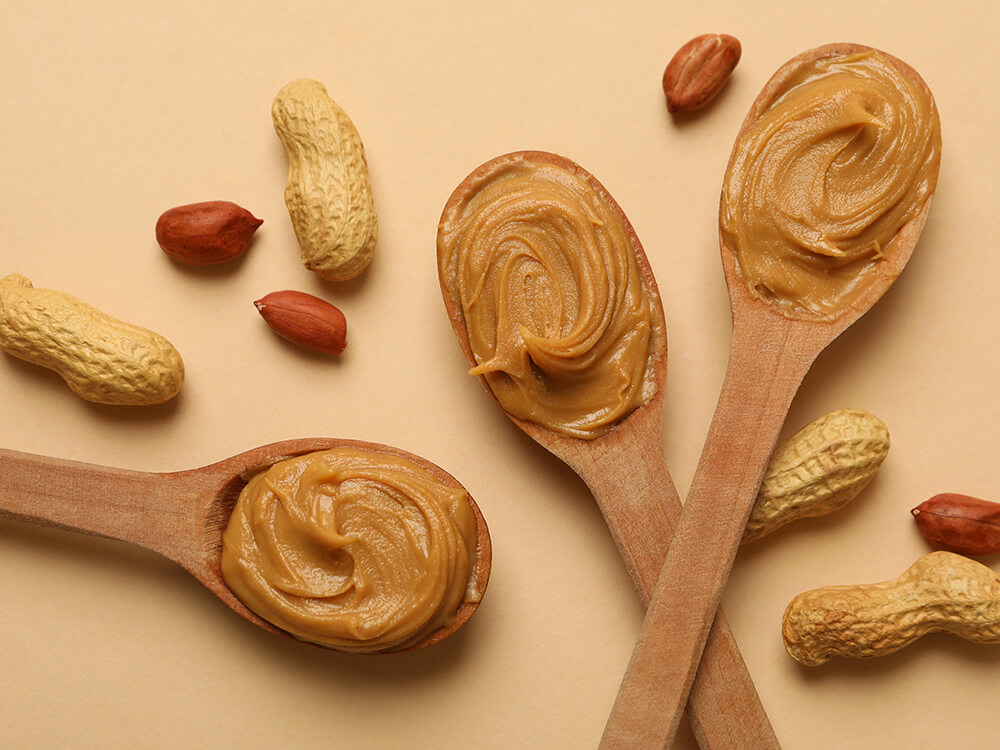
Can cats eat peanut butter? The answer to this question is not black and white. Cats can eat peanut butter, but it should never be a part of their regular diet. Otherwise, this human food can bring rise to many feline health issues.
In this article, we will talk about the dangers of peanut butter to your cat and the ideal situations when you can give it to her.
The Risks of Feeding Peanut Butter to Cats
Peanut butter has many qualities that make it unhealthy for cats to consume daily. It may even contain ingredients that may cause life-threatening health issues in felines.
Let us take a look at them one by one to understand why peanut butter is not the best treat to give to your pet.
1. Lack of Nutritional Value
As obligate carnivores, cats’ natural diet mainly consists of meat, which they get most of their nutrients from.
So feeding them peanut butter will not enhance their diet. It might even cause nutrient imbalance instead,d as this human food is full of empty calories.
2. High in Fats
Cats require moderate amounts of fats for their body to remain healthy. Although peanut butter is rich in fatty acids, the concentrations are too excessive for felines.
2 tablespoons of peanut butter provide about 15 grams of fat. It can easily take up most of your pet’s daily fat intake.
Consuming large amounts of high-fat human foods can lead to many health problems, such as gastrointestinal issues, unhealthy weight gain, and cardiac disorders.
3. Loaded with Sodium
Many peanut butter brands use salt as a flavour enhancer. It is true that sodium is important to keep your cat’s organs functioning normally, but it is also dangerous to ingest too much of this mineral.
Binging on salted peanut butter increases the risk of salt poisoning. This condition induces distressing symptoms such as vomiting, diarrhoea, excessive urination, and even seizures.
Peanut butter with high salt content can also exacerbate certain pre-existing illnesses in cats, such as heart issues and renal problems.
Peanut butter is safe to share with healthy cats. However, feeding it to felines with unresolved ailments is greatly discouraged.
4. Full of Sugar
Some peanut butter is heavily concentrated with sugar to make them sweeter. This ingredient has no place in your feline friend’s diet.
Cats cannot digest sugar well. Eating copious amounts of it will result in stomach upset. Excessive sugar intake is also linked to other ailments, such as diabetes and tooth decay.
Also, keep in mind that cats do not have a sweet tooth because their tongues lack receptors for sweetness.
5. Xylitol Poisoning
In relation to sugar, countless peanut butters contain artificial sweeteners. The most commonly used is xylitol, which is potentially toxic to cats.
Unlike dogs, felines are less susceptible to the poisonous effects of this sugar substitute. In fact, there is contention about whether ingesting xylitol can induce fatal side effects like hypoglycemia or liver failure in cats.
However, it is always better to be safe than sorry. Any peanut butter brands with xylitol should be kept away from our feline friends.
Another dangerous ingredient commonly found in peanut butter is sodium benzoate, which is a preservative. In moderate doses, it can poison cats too.
6. Choking Hazard
Peanut butter has a thick texture, which can be difficult for felines to swallow. It can get stuck in your cat’s throat, leading her to choke.
The chunky peanut butter variety is more dangerous than the smooth one. Apart from its gooey consistency, it contains pieces of peanuts, increasing the chances of accidental choking in cats.
7. Allergic Reactions
Some cats are allergic to peanut butter. If you are unsure that your feline friend has this type of condition, feed her this human food with caution.
Only offer her a small amount and closely monitor her for signs of allergic reactions, including:
- Hives
- Itchy skin
- Poor coat health
- Eye or nose discharge
- Gastric distress
Take your cat to the vet immediately if she exhibits any of these symptoms. Lack of timely treatment can lead to fatal complications like anaphylaxis.
Contributed By: Thomas Mathew
